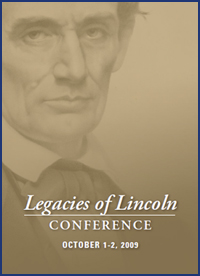Gross Goes Ledbetter
It now appears that the Gross ADEA decision might be going the way of the Ledbetter pay discrimination Title VII decision. From CQ Politics:
A trio of top Democrats from both chambers plan legislation aimed at rolling back a Supreme Court ruling they say makes it harder for plaintiffs to win age discrimination suits.
Tom Harkin , D-Iowa, chairman of the Senate Health, Education, Labor and Pensions Committee, and Patrick J. Leahy , D-Vt., chairman of the Senate Judiciary Committee, said Tuesday they will introduce a bill to restore a less-demanding burden of proof for plaintiffs in age discrimination suits. Rep. George Miller , D-Calif., chairman of the House Education and Labor Committee, said he intends to introduce a similar measure.
The proposed legislation is a response to the Supreme Court’s June 2009 ruling in Gross v. FBL Financial Services that plaintiffs claiming disparate treatment under the Age Discrimination in Employment Act must show that age was the determining factor in the alleged discrimination, rather than just one of several factors . . . .
Under the proposed legislation, the burden would be on the employer to show it complied with the law once a plaintiff shows age discrimination was a “motivating factor” behind an employment decision.
What I particularly like about the Congressional response is that in announcing the legislation, Sen. Leahy quite rightly referred to the Supreme Court’s decision as an activist decision by conservative justices.
Of courses when I say that “Gross Goes Ledbetter,” I refer to the fact that President Obama signed into law the Lilly Ledbetter Fair Pay Act making it easier for workers to challenge wage discrimination, responding to the restrictive 2007 Supreme Court ruling in Ledbetter.

 The
The  On their last day of the exchange program, October 2, the Chilean students visited an array of legal organizations working in the Milwaukee community.
On their last day of the exchange program, October 2, the Chilean students visited an array of legal organizations working in the Milwaukee community.  In the afternoon the students visited non-governmental agencies working with the Latino community in South Milwaukee. First, they visited Catholic Charities to learn about immigration work and the issues it raises, most notably the hardship faced by families that are often separated due to their immigrant status. Attorney Barb Graham spoke of her tireless work to represent her clients, which frequently requires travelling to Chicago. Afterwards, the students visited Centro Legal where Executive Director Heather Ramirez invited them to cookies and Alterra coffee. The meeting featured staff lawyers Sam Levin and Jason Mishelow speaking about family law; and Mike Blater, criminal law. Board member Mike Balter also offered information about the organization, which offers legal services on a sliding scale. The final stop was at Voces de la Frontera where the members of this association spoke of their grassroots movement to change policy in favor of immigrant and Latino populations, such as laws to allow for valid drivers licenses and fair wages. They explained that their legal work (free clinics on Saturday) complement their activism to help stimulate broader policy change.
In the afternoon the students visited non-governmental agencies working with the Latino community in South Milwaukee. First, they visited Catholic Charities to learn about immigration work and the issues it raises, most notably the hardship faced by families that are often separated due to their immigrant status. Attorney Barb Graham spoke of her tireless work to represent her clients, which frequently requires travelling to Chicago. Afterwards, the students visited Centro Legal where Executive Director Heather Ramirez invited them to cookies and Alterra coffee. The meeting featured staff lawyers Sam Levin and Jason Mishelow speaking about family law; and Mike Blater, criminal law. Board member Mike Balter also offered information about the organization, which offers legal services on a sliding scale. The final stop was at Voces de la Frontera where the members of this association spoke of their grassroots movement to change policy in favor of immigrant and Latino populations, such as laws to allow for valid drivers licenses and fair wages. They explained that their legal work (free clinics on Saturday) complement their activism to help stimulate broader policy change. In the evening the Chilean delegation accepted the gracious invitation to attend the annual dinner of the MULS Hispanic Law Students Association which took place at Club Tres Hermanos in South Milwaukee. The festive event featured Mexican cuisine and conversation in both Spanish and English. The Chileans sang songs along with the Mariachi band and demonstrated Chilean dances. The occasion was a perfect ending to a full week of academic exploration.
In the evening the Chilean delegation accepted the gracious invitation to attend the annual dinner of the MULS Hispanic Law Students Association which took place at Club Tres Hermanos in South Milwaukee. The festive event featured Mexican cuisine and conversation in both Spanish and English. The Chileans sang songs along with the Mariachi band and demonstrated Chilean dances. The occasion was a perfect ending to a full week of academic exploration.